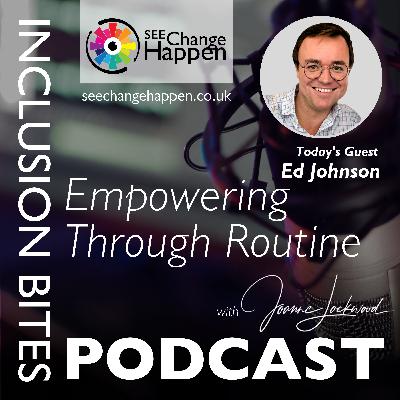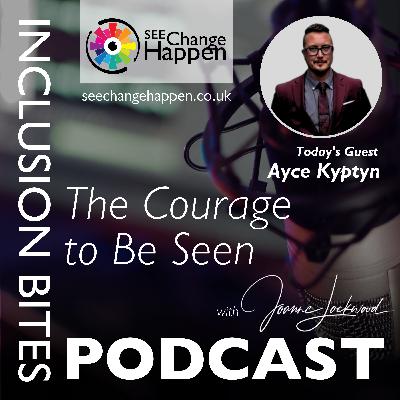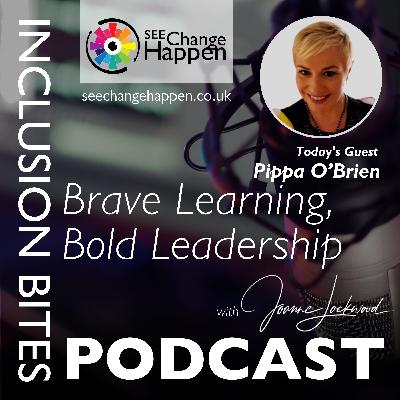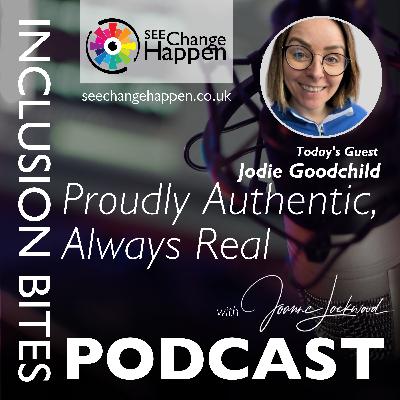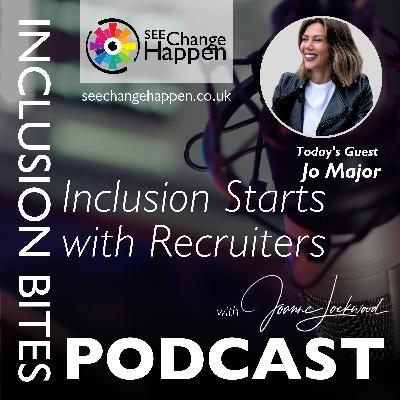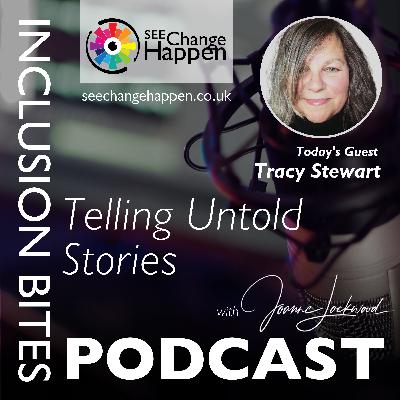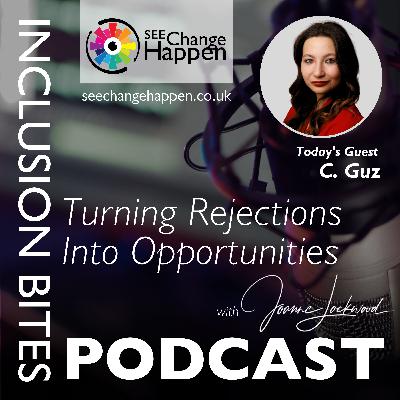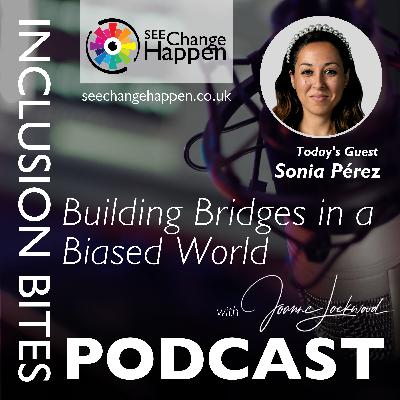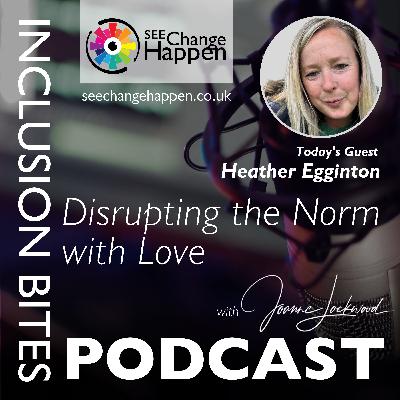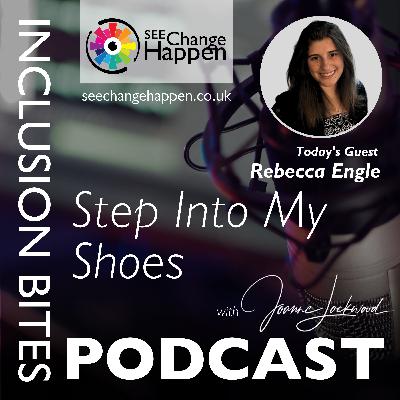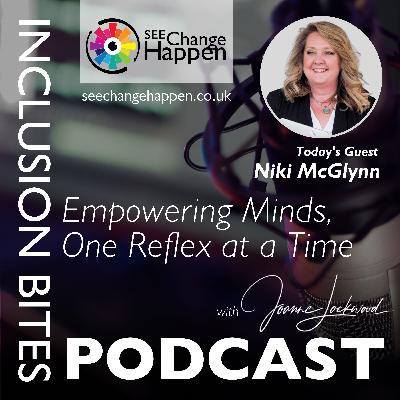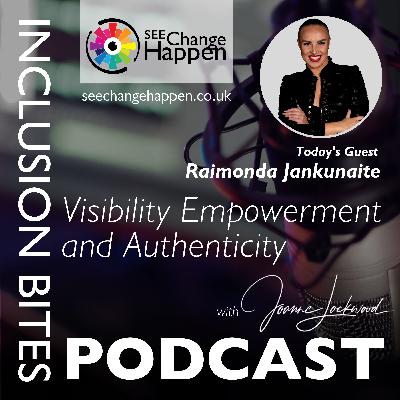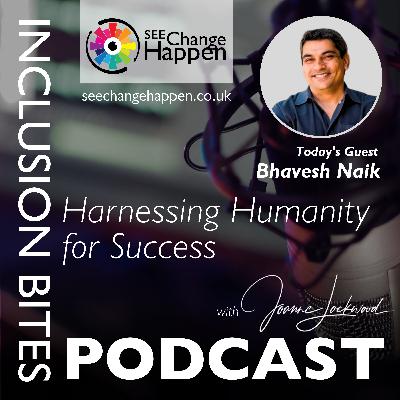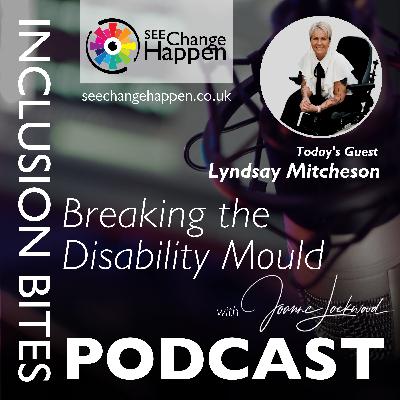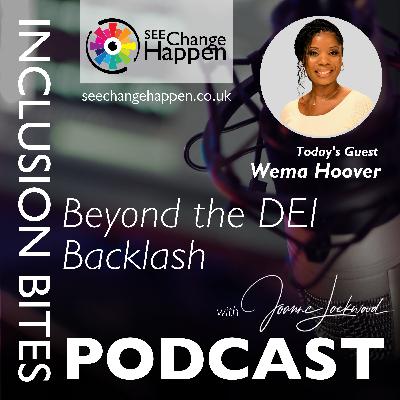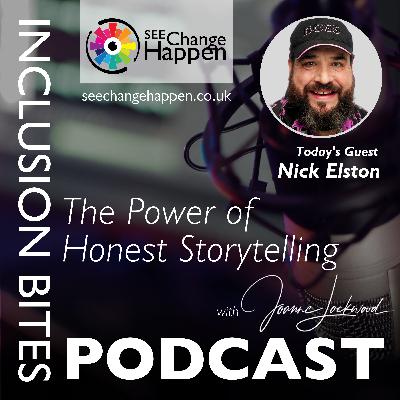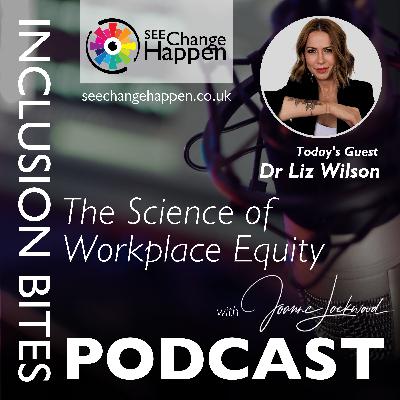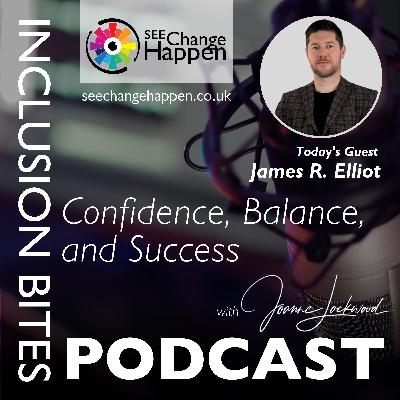Unlocking Neurodivergent Potential
Description

Empowering ADHD Individuals Through Neuro-Inclusive Coaching
Alex Bellitter explores the dynamic landscape of neurodivergence, revealing how tailored, neuro-inclusive coaching empowers individuals with ADHD to harness their unique strengths and thrive within a world shaped by neurotypical expectations.
In this thought-provoking episode of The Inclusion Bites Podcast, Joanne Lockwood welcomes Alexandra Bellitter to discuss "Unlocking Neurodivergent Potential". The conversation examines the limitations of traditional coaching methods for neurodivergent individuals, particularly those with ADHD, and spotlights the importance of genuinely adaptive, person-centred approaches. Joanne and Alex challenge the assumption that neurodivergence should be ‘fixed’. Instead, they explore how embracing natural differences can create pathways to thriving in both professional and personal settings. The discussion dispels the myth of one-size-fits-all strategies, offering practical examples of how to tailor workplace support and self-advocacy. Alexandra provides valuable insight into reducing overwhelm and building systems that operate in harmony with diverse minds, from managing deadlines and communication preferences, to leveraging technology without falling prey to distraction.
Alex is an operations manager and lead at Shimmer ADHD Coaching, where she pioneers neuro-inclusive coaching initiatives designed to support the ADHD community in reaching their aspirations. Driven by an enduring love of learning, Alex’s commitment is firmly rooted in advancing neuro-inclusivity, with expertise in translating neuropsychological theory into actionable coaching frameworks. Based in Dallas, Alex brings a global outlook to her practice, combining professional skills with lived experiences to facilitate empowerment, self-discovery, and advocacy for neurodivergent individuals. Her approach is founded on authentic partnership—enabling clients to co-create solutions that reflect their unique lived realities rather than adapting to preconceived expectations.
Highlighting real-life workplace scenarios—such as the stress of changing deadlines, struggles with memory, and the challenge of open communication—Joanne and Alex illustrate the importance of radical candour, mutual understanding, and tailored reasonable adjustments for all. The episode explores the rising visibility of neurodivergence, gender differences in diagnosis, and the stigma that still pervades many environments. Together, they unpack strategies for self-management, disclosure, and constructive advocacy that foster genuinely inclusive cultures.
A key takeaway is the transformative impact of rejecting deficit narratives in favour of empowerment and choice. This episode is essential listening for anyone keen to understand, support, or unlock the strengths of neurodivergent colleagues or themselves, offering practical wisdom and renewed optimism for building workplaces where everyone can flourish.
Shownotes:
AI Extracts and Interpretations
The Inclusion Bites Podcast -
#163 Unlocking Neurodivergent Potential
— app.castmagic.io
Other Links
SEE Change Happen: The Inclusive Culture Experts
Inclusion Bites Podcast on YouTube
Clips and Timestamps
Viral Topic: Neuro-Inclusive Coaching
Quote: “So even just from the initial start of the session, that’s one way you can make it more neuro inclusive.”
— Alexandra Bellitter [00:04:42 → 00:04:47 ]
Viral Topic: The Power of Vulnerability in Choosing a Coach: “Usually when someone signs up for coaching, it is a very raw and vulnerable moment of I’m going to choose to have someone in my life to partner with, to reach my goals.”
— Alexandra Bellitter [00:05:47 → 00:05:55 ]
Viral Topic: The Struggle for Neurodiverse Inclusion
“It’s sort of one of those things that you have to go find for yourself, which can be really disheartening of no one’s prioritising what I need in this. I have to go on this journey by myself, so.”
— Alexandra Bellitter [00:07:06 → 00:07:16 ]
Neurodiversity and Stigma: “when I’m talking about neurodivergence, we’re talking about a natural variation in how people present it is not something to be fixed, healed, treated. This is something that we’re working with, this is something that we can be managed when there’s difficulties. But there’s also plenty of benefits with having a neurodivergent brain and I would say it’s largely contributed to visibility of 20 years ago. The conversations looked very different, the stigma looked very different and a lot of people avoided a label for their child.”
— Alexandra Bellitter [00:23:08 → 00:23:39 ]
Viral Topic: Neurodivergence and Workplace Expectations: “It’s a pretty common statistic that goes around that a neurodivergent child is going to hear 20,000 more negative comments than their peers by the age of 12.”
— Alexandra Bellitter [00:28:57 → 00:29:06 ]
The Attention Economy and Phones: “we have a bit of an attention economy of how can we hold your attention for a long time because that’s profitable”
— Alexandra Bellitter [00:40:10 → 00:40:17 ]
The Impact of Constant Digital Alerts on Neurodiversity: “Their sensitivity to those alerts is different than for a neurotypical. So while all of us may be dealing with more demand and things pulling us away from our tasks, it is experienced very differently between neurotypicals and neurodivergent.”
— Alexandra Bellitter [00:42:35 → 00:42:47 ]
Viral Topic: The Hidden Challenges of Virtual Communication for Neurodivergent Individuals: “It is different when we’re talking about virtual communication of how quickly do they expect a response from us? How inconvenient is it for me to try to respond to text quickly when I’m trying to focus on a portfolio and test switching can be more difficult.”
— Alexandra Bellitter [00:44:08 → 00:44:21 ]
ADHD Coaching Demystified: “Of course, I’m biassed because I’m an ADHD coach, but with ADHD coaching there are three different elements. So that first is the traditional life coaching, where we’re talking about the visions, the goals, the experiments each week and using your strengths. The second piece is going to be psychoeducation. So if you’re curious about how does the ADHD brain work? How is ADHD showing up? For me, those are absolutely conversations that we can have. It’s all about becoming more informed and empowered with this information. How do I want to proceed? What does this mean for me? Why do I want to know about that? It’s all questions that we can go through together. And then the third piece being executive function coaching or skill building, if there’s something where you’re noticing, hey, you know, I’m really struggling with time management or decision making.”
— Alexandra Bellitter [00:50:51 → 00:51:35 ]
Viral Topic: Radical Candour at Work: “So just having a very transparent conversation with the employee in a way that you’re employing radical candour of.”
— Alexandra Bellitter [00:53:00 → 00:53:08 ]
Definition of Terms Used
Neuro-Inclusive Coaching
- Definition: Neuro-inclusive coaching refers to coaching methodologies and practices that intentionally accommodate and support the needs of neurodivergent individuals, such as those with ADHD, recognising and valuing different neurological experiences.
- Relevance: Standard coaching approaches often assume neurotypical client behaviour and cognitive style. Neuro-inclusive coaching addresses this shortfall by meeting individuals where they are, helping facilitate meaningful engagement and goal achievement for those whose brains process information differently.
- Examples: Instead of starting with broad questions like “How have things been since we last met?”, a neuro-inclusive coach may ask more targeted prompts, such as “How did you feel when you decided to start coaching with me?” to reduce cognitive overload.
- Related Terms: Neurodiversity, Individ

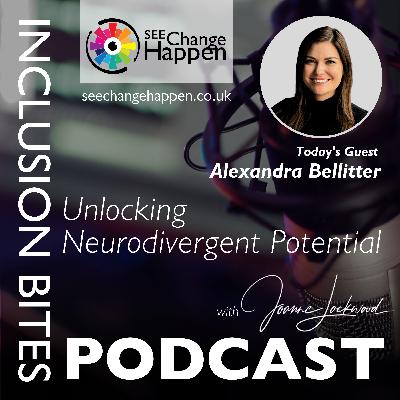
 Published: 19.06.2025
Published: 19.06.2025 Duration:
Duration: 